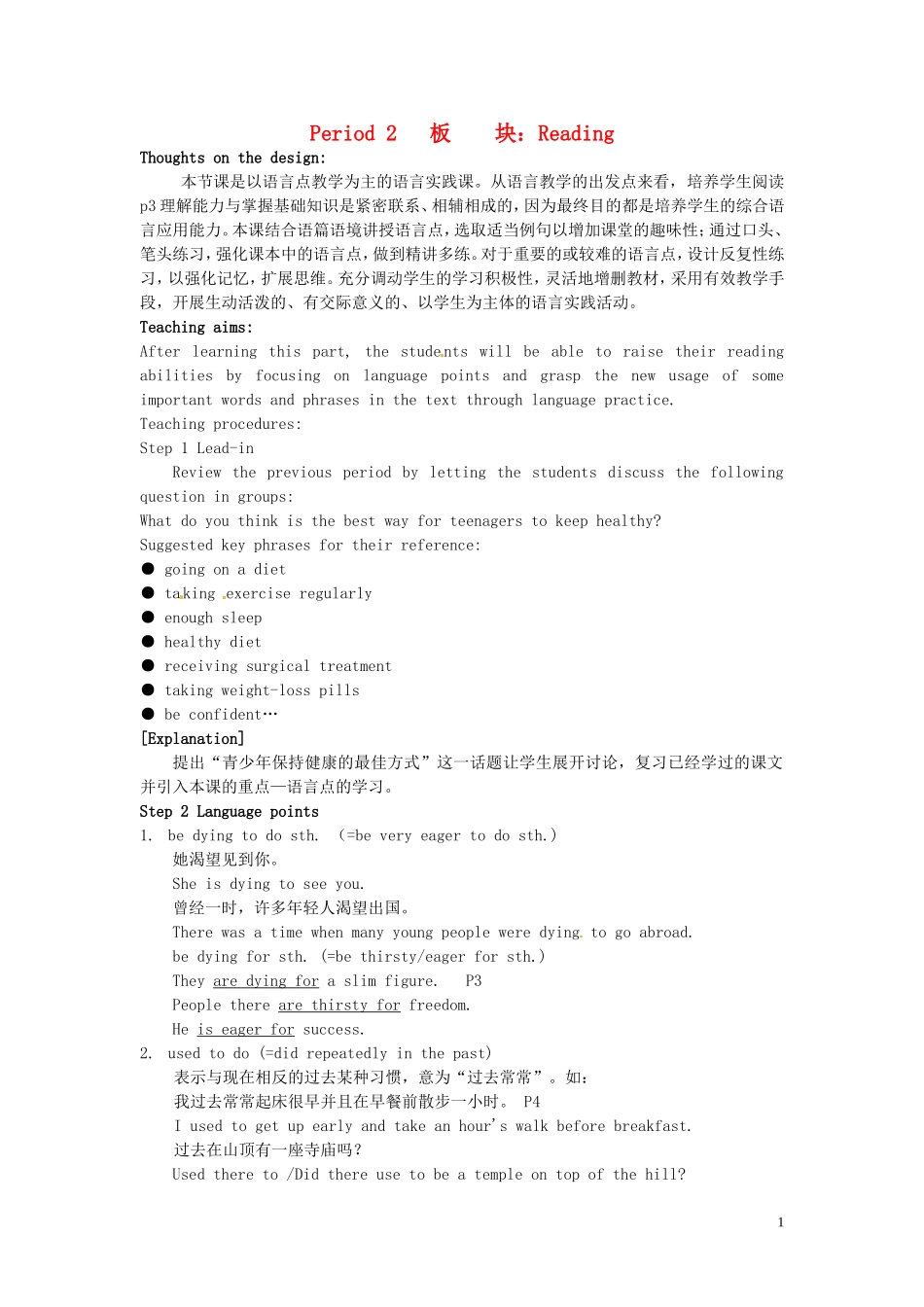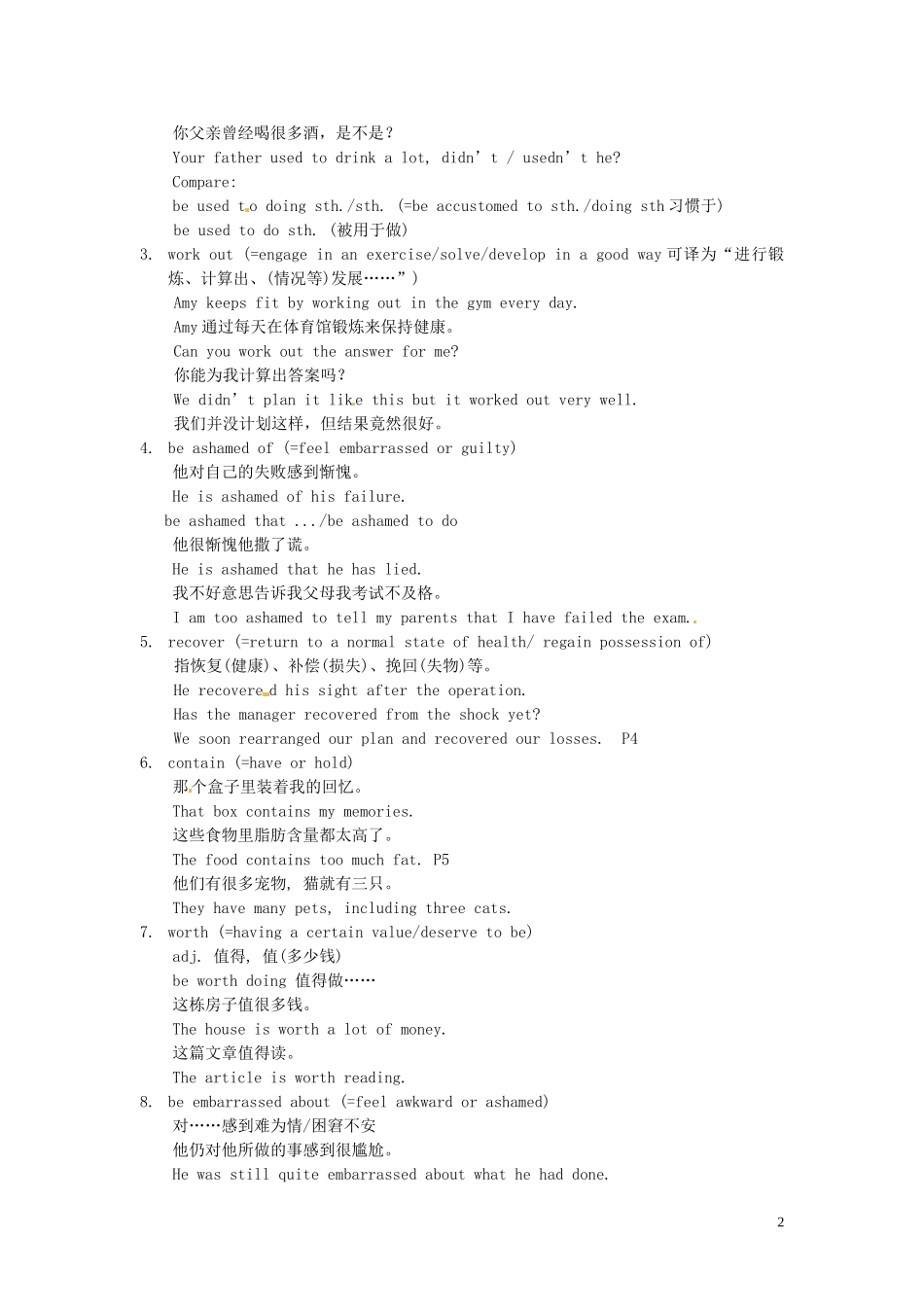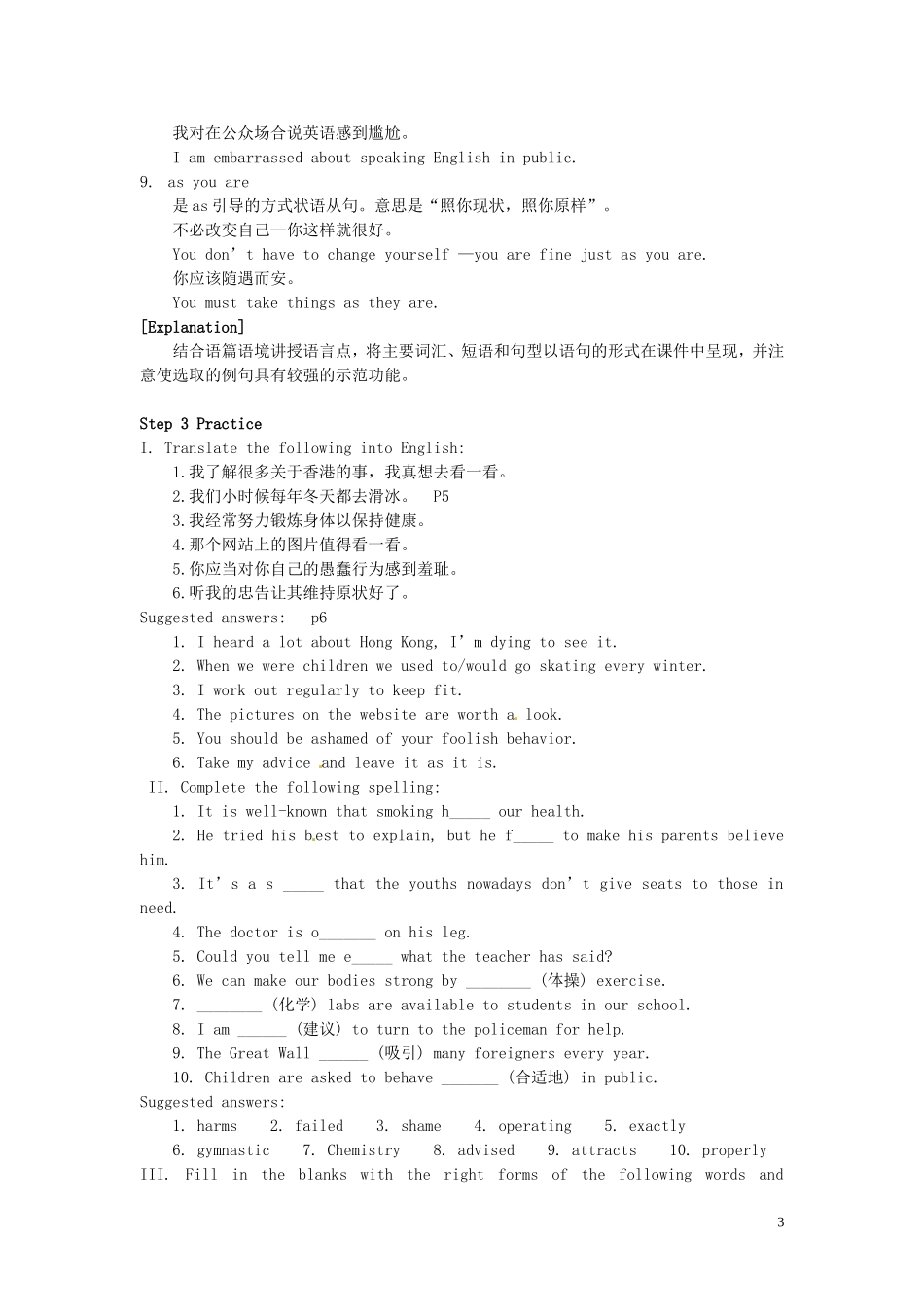Period 2 板 块:Reading Thoughts on the design:本节课是以语言点教学为主的语言实践课。从语言教学的出发点来看,培养学生阅读p3 理解能力与掌握基础知识是紧密联系、相辅相成的,因为最终目的都是培养学生的综合语言应用能力。本课结合语篇语境讲授语言点,选取适当例句以增加课堂的趣味性;通过口头、笔头练习,强化课本中的语言点,做到精讲多练。对于重要的或较难的语言点,设计反复性练习,以强化记忆,扩展思维。充分调动学生的学习积极性,灵活地增删教材,采用有效教学手段,开展生动活泼的、有交际意义的、以学生为主体的语言实践活动。Teaching aims:After learning this part, the stude nts will be able to raise their reading abilities by focusing on language points and grasp the new usage of some important words and phrases in the text through language practice.Teaching procedures:Step 1 Lead-inReview the previous period by letting the students discuss the following question in groups:What do you think is the best way for teenagers to keep healthy?Suggested key phrases for their reference:● going on a diet ● taking exercise regularly● enough sleep ● healthy diet ● receiving surgical treatment ● taking weight-loss pills● be confident…[Explanation] 提出“青少年保持健康的最佳方式”这一话题让学生展开讨论,复习已经学过的课文并引入本课的重点—语言点的学习。Step 2 Language points1. be dying to do sth. (=be very eager to do sth.) 她渴望见到你。She is dying to see you.曾经一时,许多年轻人渴望出国。There was a time when many young people were dying to go abroad.be dying for sth. (=be thirsty/eager for sth.)They are dying for a slim figure. P3People there are thirsty for freedom.He is eager for success.2. used to do (=did repeatedly in the past)表示与现在相反的过去某种习惯,意为“过去常常”。如:我过去常常起床很早并且在早餐前散步一小时。 P4I used to get up early and take an hour's walk before breakfast. 过去在山顶有一座寺...


